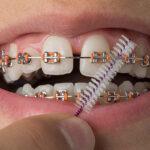Losing a tooth can be a daunting experience, but it’s a reality that many people face. Whether it’s due to decay, gum disease, injury, or other reasons, the loss of a tooth can have significant consequences for your oral health and overall well-being. In this blog, we’ll explore why it’s crucial to replace a tooth after extraction, and we’ll also discuss why dental implants, particularly the Best Dental Implant in HSR Layout, Bangalore stand out as the best option for tooth replacement.
The Importance of Replacing a Missing Tooth
Maintain Proper Oral Function
Each tooth in your mouth plays a unique role in chewing and speaking. When you lose a tooth, your ability to bite and chew food effectively can be compromised. This can lead to digestive issues as you may struggle to properly break down your food. Additionally, speech impediments can arise due to the gap left by the missing tooth.
Prevent Shifting of Adjacent Teeth
Your teeth are not static; they are constantly exerting pressure on each other. When a tooth is removed, the neighboring teeth can start to shift into the vacant space. This movement can cause misalignment issues, leading to a host of dental problems such as crooked teeth, difficulty cleaning your teeth, and even temporomandibular joint (TMJ) disorders.
Preserve Bone Density
One often-overlooked consequence of tooth loss is the gradual loss of bone density in the jaw. The roots of your teeth stimulate the surrounding bone, maintaining its strength and density. When a tooth is extracted and not replaced, the jawbone in that area begins to deteriorate. Over time, this can lead to facial changes, making you appear older than you are.
Why Dental Implants are the Best Option
Now that we’ve established the importance of replacing a missing tooth, let’s delve into why dental implants are considered the gold standard for tooth replacement.
Natural Look and Feel
Dental implants closely mimic the appearance and function of natural teeth. They are securely anchored in the jawbone and topped with a lifelike crown, providing a seamless blend with your existing teeth. This natural look and feel boosts your confidence and allow you to smile, eat, and speak comfortably.
Longevity
Dental implants are a durable, long-term solution. With proper care and maintenance, they can last a lifetime. This contrasts with other options like dentures and bridges, which may require frequent adjustments and replacements.
Preservation of Adjacent Teeth
Unlike traditional bridges, dental implants don’t rely on adjacent teeth for support. This means that the health and integrity of your neighboring teeth remain unaffected. The adjacent teeth won’t be filed down or modified in any way to accommodate the implant, as is the case with bridges.
Jawbone Preservation
Implants stimulate the jawbone just like natural tooth roots, preventing bone loss and maintaining facial structure. This ensures that you retain a youthful appearance and avoid the sunken facial features that can result from untreated tooth loss.
Improved Oral Health
Dental implants are easy to clean and maintain, reducing the risk of oral health issues like gum disease and decay. They don’t require special adhesives or removal for cleaning, as is the case with dentures.
In conclusion, replacing a missing tooth after extraction is vital for maintaining proper oral function, preventing dental issues, and preserving your overall health. Among the various options available, dental implants, such as those provided by a trusted Dental Clinic in HSR Layout, Bangalore stand out as the best choice due to their natural look and feel, longevity, preservation of adjacent teeth, jawbone preservation, and positive impact on oral health. If you’re considering tooth replacement, consult with a qualified dentist to discuss the suitability of dental implants for your specific case. Remember, a healthy smile is a key component of a happy and fulfilling life.






